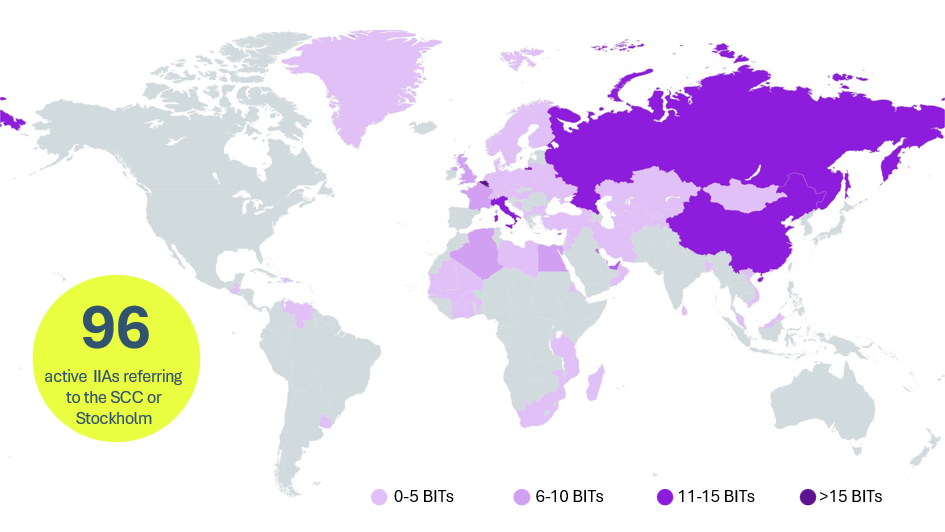SCC releases new report “Arbitrating for Peace: Stockholm, SCC Arbitration Institute, and ISDS”
The SCC has a longstanding role as a forum for Investor-State Dispute Settlement (ISDS). Its new report, co-authored by Jake Lowther, Raoul J. Sievers, and Caroline Falconer, “Arbitrating for Peace: Stockholm, SCC Arbitration Institute, and ISDS” provides invaluable insights into the current state of play in international investment trends and dispute resolution. It also underscores the SCC’s continuing role in facilitating ISDS.
Published

A continuing tradition
Building on its proud tradition as a neutral forum for East-West disputes, the SCC has administered 129 ISDS cases since 1993 with a high rate of cases filed in recent years. The report highlights investors’ ongoing trust in the SCC’s commitment to providing a neutral and impartial forum for dispute resolution. Despite global shifts in the investment landscape, the SCC remains entrusted with administering high-value, complex cross-border disputes.
The report observes that 96 active International Investment Agreements (IIAs) refer to either the SCC or Stockholm, underscoring its continued importance for disputes across continents and legal traditions. This report also affirms the SCC’s status as a provider of efficient dispute resolution services in ISDS cases. In this way, the SCC contributes to the promotion of international trade and investment, as well as to peaceful conflict resolution.
“The SCC remains one of the most preferred fora for ISDS arbitrations. While the legal basis and nature of these cases may shift, we observe that the number of disputes remains stable.” say Jake Lowther, Specialist Counsel, and Raoul J. Sievers, Visiting Professional

The geographic reach of SCC’s ISDS caseload
Moreover, the report highlights the SCC’s recognised neutrality across different geographies and legal traditions. Approximately 67% of current BITs referring to the SCC involve civil law jurisdictions, 10% are associated with hybrid legal systems influenced by civil law, and 23% represent common law systems. This demonstrates the SCC’s flexibility and appeal, regardless of the contracting parties’ legal backgrounds. Equally noteworthy is reference to the SCC in major IIAs including the Energy Charter Treaty, relied on by many investors in arbitrations initiated with the SCC over the years.
A changing ISDS landscape
While the intra-EU landscape has changed in the years following inter alia the CJEU’s decision in Slovak Republic v Achmea, the report demonstrates that states and investors from diverse regions continue to rely on the SCC’s administration and procedural framework, reinforcing its leading position among international arbitration institutions. Ultimately, this report underlines the SCC’s commitment to fostering economic cooperation and encouraging peaceful conflict resolution on the global stage.
Prefer listening instead of reading? Check out our AI-generated podcast covering this SCC report. Please note that ‘ICSID’ is pronounced incorrectly throughout the episode. We appreciate your understanding and hope you find both the report and podcast insightful.
The authors are grateful to Raffaela Isepponi, Erik Erba Stenhammar, Chloé Heydarian, and Gaurav Majumdar for their invaluable contributions to this report.